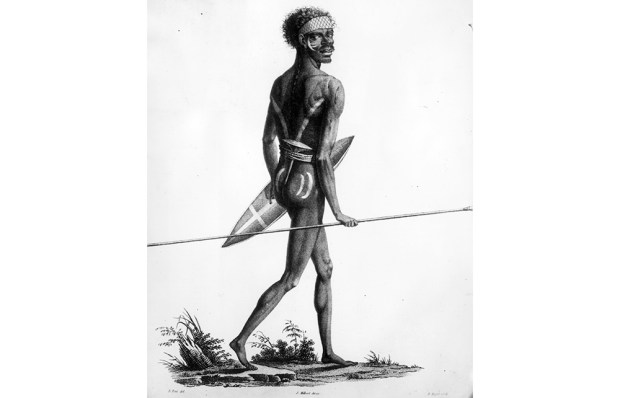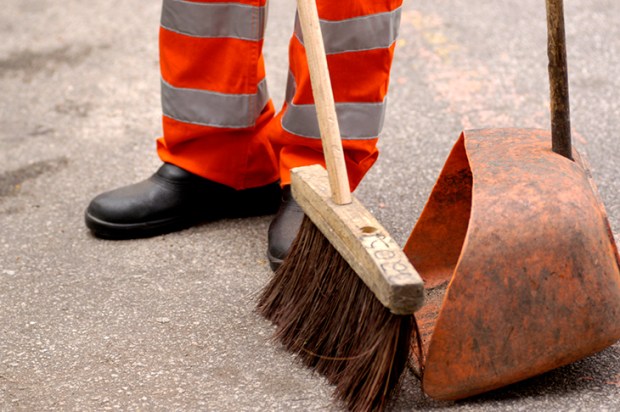Being an AFL umpire does not look like a job for the thin-skinned. Given the passion of the code’s fan base, I imagine most umps get used to having abuse hurled at them from the cheap seats. And they know that even players are capable of expressing their dissatisfaction physically (remember the 1985 brain snap of Collingwood’s John Bourke?). But I doubt if anything in Stephen McBurney’s 400-game, four-Grand Finals career would have alarmed him quite as much as Victorian CFMEU leader John Setka’s description of him as an ‘anti-union, anti-worker f–ker’ whose recent promotion ‘is going to cost the AFL a lot of f–king money’. Mr Setka is not know for his deployment of Socratic method in dispute resolution, but even for him, the statements he made last week seemed gratuitously colourful. I like to believe his New South Wales counterpart would have used more temperate language, and that’s not just because I’m a Swans supporter. It’s also because I recently filmed a video in the headquarters of the NSW CFMEU, and can honestly say I’ve never met a more friendly, less intimidating group of people. (Even though my first fleeting impression, on walking into the tastefully and expensively appointed reception of their Ultimo offices, and noting the muscles, tattoos, beards and black t-shirts of everybody else there, was that I had interrupted a burglary.)
I am lucky enough never to have had a job which exposed me to regular threats of violence. But I have come close on a couple of occasions. The first time was when, as a teenage copy boy on a national newspaper, I got trapped in a broken lift with what was known as ‘The Ethel’; a foursome of chain-smoking matrons who moved slowly through the building each day emptying waste-paper baskets, wiping desks and mopping bathrooms. Up until then I’d assumed that the stories I’d heard about The Ethel’s predatory behaviour around young male co-workers were apocryphal, so I was not overly concerned when the lift juddered to a halt. And seeing the conspicuously large watch on the ham-like wrist of one of these ladies, I asked her the time. Whereupon she thrust this watch so close to my face that I couldn’t fail to observe a) that it was made of cardboard, and b) that it was ‘TIME TO F–K’. I laughed, as I supposed I was meant to, but instead of joining in with my laughter, The Ethel, all of whom were older than my mother and larger than my father, just gazed thoughtfully at me through the haze of their exhalations, like a pod of orcas contemplating a young seal they have cornered beneath the ice. To make matters worse, at this precise moment the massive presses on the printing floor beneath us roared into life, rendering inaudible any calls for assistance I might have made. But before The Ethel could take advantage of this, the lift lurched suddenly back into motion, and a few seconds later I staggered out onto the accounts floor with honour and trousers intact.
My only near-death work experience happened twenty years later, when the managing director of the Sydney advertising agency I was working for tried to throw me out of an eighth-storey window. Two weeks earlier I had taken my entire department off-site for two days and run up a hotel room service bill which would not have disgraced a Rolling Stones farewell tour. Incandescent with rage when he saw this bill, the MD read it out, item by item, at the next board meeting and asked me to explain it. I confessed that I couldn’t, and said that he and everybody else around the table had every right to be angry with me and that I was very, very sorry. And if I had stopped there that might have been the end of the matter. Instead, I waited until he had resumed his seat before adding, in a low voice, ‘But do you know what the worst thing is?’ He glared expectantly across the table at me, his fists still clenched and a small vein in his temple still pulsating visibly. ‘The worst thing is,’ I said, with a stoical shrug and a sigh, ‘it will happen again.’
Got something to add? Join the discussion and comment below.
You might disagree with half of it, but you’ll enjoy reading all of it. Try your first month for free, then just $2 a week for the remainder of your first year.














